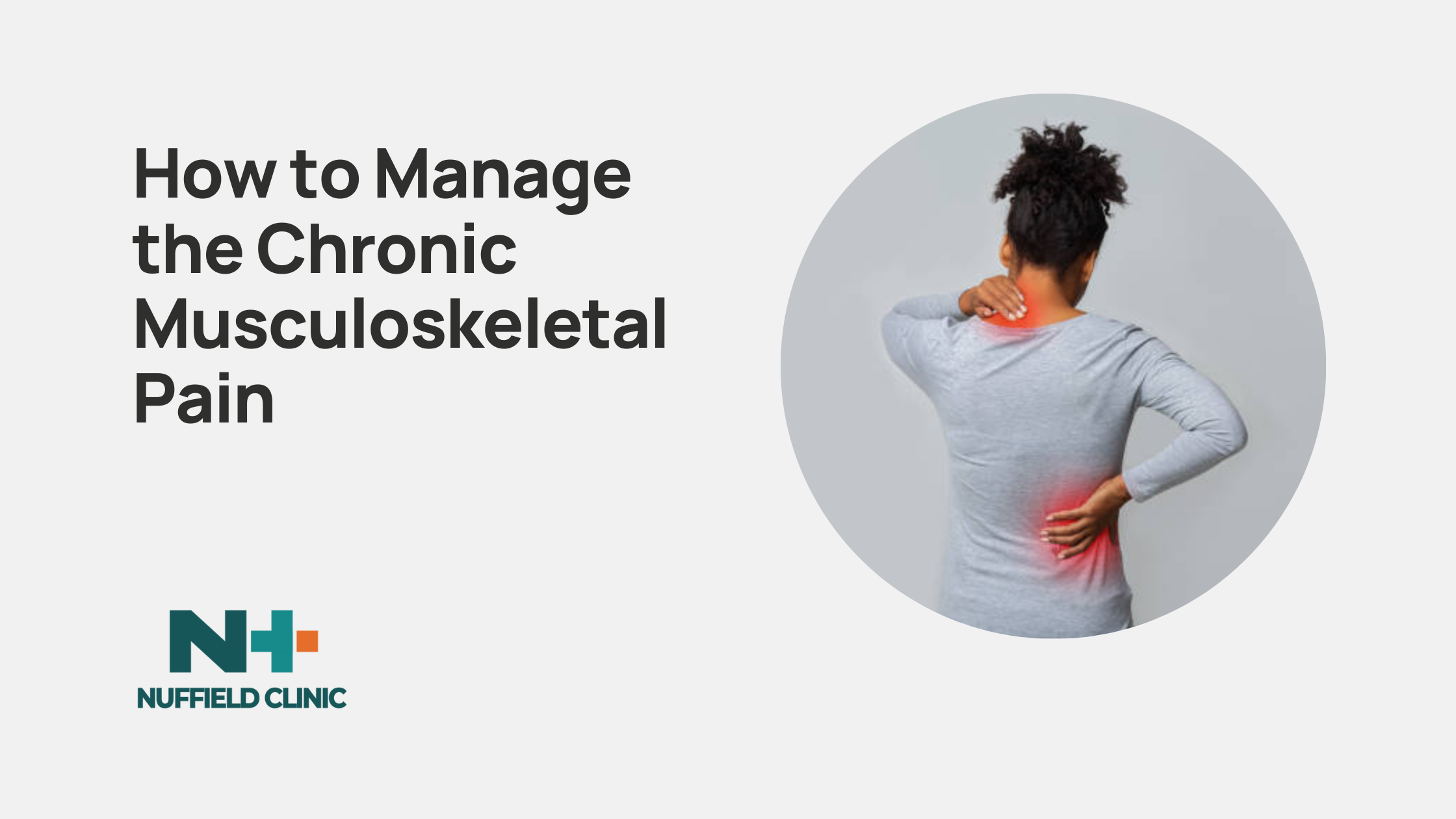How to Manage the Psychological Impact of Chronic Musculoskeletal Pain and Improve Your Mental Health

Are you struggling with chronic musculoskeletal pain? Do you find that it’s affecting your mental well-being as well? This article explores the psychological impact of chronic pain and offers practical advice on managing both physical and emotional challenges.
Understanding this connection is crucial for improving your overall health and quality of life, and the strategies discussed can help you regain control and feel better both mentally and physically.
Chronic musculoskeletal pain (CMP) affects millions of people worldwide and goes beyond physical discomfort. While most focus on alleviating the physical symptoms of pain, the psychological impact of chronic pain is often overlooked.
It is crucial to understand how chronic pain affects mental health, creating a cycle that can worsen both physical and emotional well-being.
By recognizing the interconnection between these two aspects, individuals can seek the appropriate treatment and management for both their pain and mental health concerns.
The Interconnection Between Chronic Pain and Mental Health
Research has shown a bidirectional relationship between chronic pain and mental health disorders. This means that chronic pain can lead to mental health issues, and pre-existing mental health problems can amplify the experience of pain.
According to various studies, people suffering from chronic musculoskeletal conditions are more likely to experience mental health issues, including depression, anxiety, and post-traumatic stress disorder (PTSD).
In fact, about 35% to 45% of individuals with chronic pain also experience depression, which can worsen the perception of pain and create a vicious cycle of increasing pain and emotional distress.
Conversely, mental health disorders can also make the experience of pain more intense. Anxiety, for instance, may heighten pain sensitivity, while depression can create feelings of hopelessness and frustration, making it even more challenging to manage chronic pain.
This reciprocal influence highlights the importance of addressing both the physical and psychological aspects of treatment when managing chronic musculoskeletal conditions.
Psychological Challenges Associated with Chronic Pain
Living with chronic musculoskeletal conditions brings several psychological challenges that can severely impact quality of life. These challenges include:
- Depression: Persistent pain can lead to feelings of sadness, hopelessness, and helplessness. It can affect a person’s ability to enjoy daily activities, leading to a diminished sense of well-being.
- Anxiety: Constant concerns about pain and its potential for worsening can create significant anxiety. The fear of engaging in activities that might aggravate the pain often leads to a lack of social engagement and lifestyle changes that exacerbate feelings of isolation.
- PTSD: In some cases, chronic pain may result from traumatic events, which can lead to PTSD. This adds an additional layer of emotional stress and difficulty in managing the pain, as the psychological trauma reinforces the perception of suffering.
- Social Isolation: Chronic pain can limit a person’s ability to engage in social or recreational activities. The ongoing pain can result in withdrawal from social interactions, leading to loneliness and isolation, which can further worsen mental health symptoms.
Treatment Approaches: A Holistic Approach to Pain and Mental Health
Given the interconnected nature of chronic pain and mental health, a holistic approach to treatment is essential for effective management. Here are some of the key strategies for managing both the physical and psychological components of chronic musculoskeletal pain:
1. Integrated Care
A collaborative approach that involves primary care physicians, mental health professionals, and pain specialists is crucial. Integrated care allows for a more comprehensive treatment plan that addresses both the physical and emotional aspects of chronic pain.
By working together, healthcare providers can create a personalized treatment plan that improves overall outcomes for patients.
2. Psychotherapy
Therapeutic interventions, such as Cognitive Behavioral Therapy (CBT), have been shown to be effective in treating both chronic pain and the associated mental health challenges. CBT helps patients develop coping strategies to manage their pain and the emotional distress it causes.
Other therapeutic modalities, such as mindfulness and relaxation techniques, can also be beneficial in reducing anxiety and depression.
3. Medications
Certain medications, including antidepressants and anticonvulsants, have demonstrated effectiveness in treating both chronic pain and mental health conditions. By addressing the underlying mood disorder, these medications can help reduce pain perception and improve overall mental well-being.
4. Lifestyle Modifications
Adopting healthy lifestyle habits can improve both physical and mental health outcomes. Regular physical activity, a balanced diet, and sufficient sleep are essential for managing chronic pain and improving emotional resilience. Exercise, in particular, has been shown to release endorphins, which act as natural painkillers and mood boosters.
Conclusion
The psychological impact of chronic musculoskeletal conditions is profound and cannot be ignored. Understanding the complex relationship between physical pain and mental health is essential for developing effective treatment strategies that address both aspects of the condition.
By integrating physical and psychological care, healthcare providers can offer more effective solutions, enhancing the overall quality of life for individuals suffering from chronic pain.
If you or someone you know is dealing with chronic musculoskeletal pain and the associated mental health challenges, it is crucial to seek comprehensive care. At Nuffield Clinic, we specialize in providing integrated care for individuals suffering from musculoskeletal conditions.
Our team of specialists is equipped to address both the physical and psychological aspects of chronic pain, helping you achieve a better quality of life. Don’t let chronic pain and mental health struggles control your life – reach out to Nuffield Clinic for the support you deserve.
Contact Nuffield Clinic today to schedule a consultation and begin your journey toward healing and well-being.







